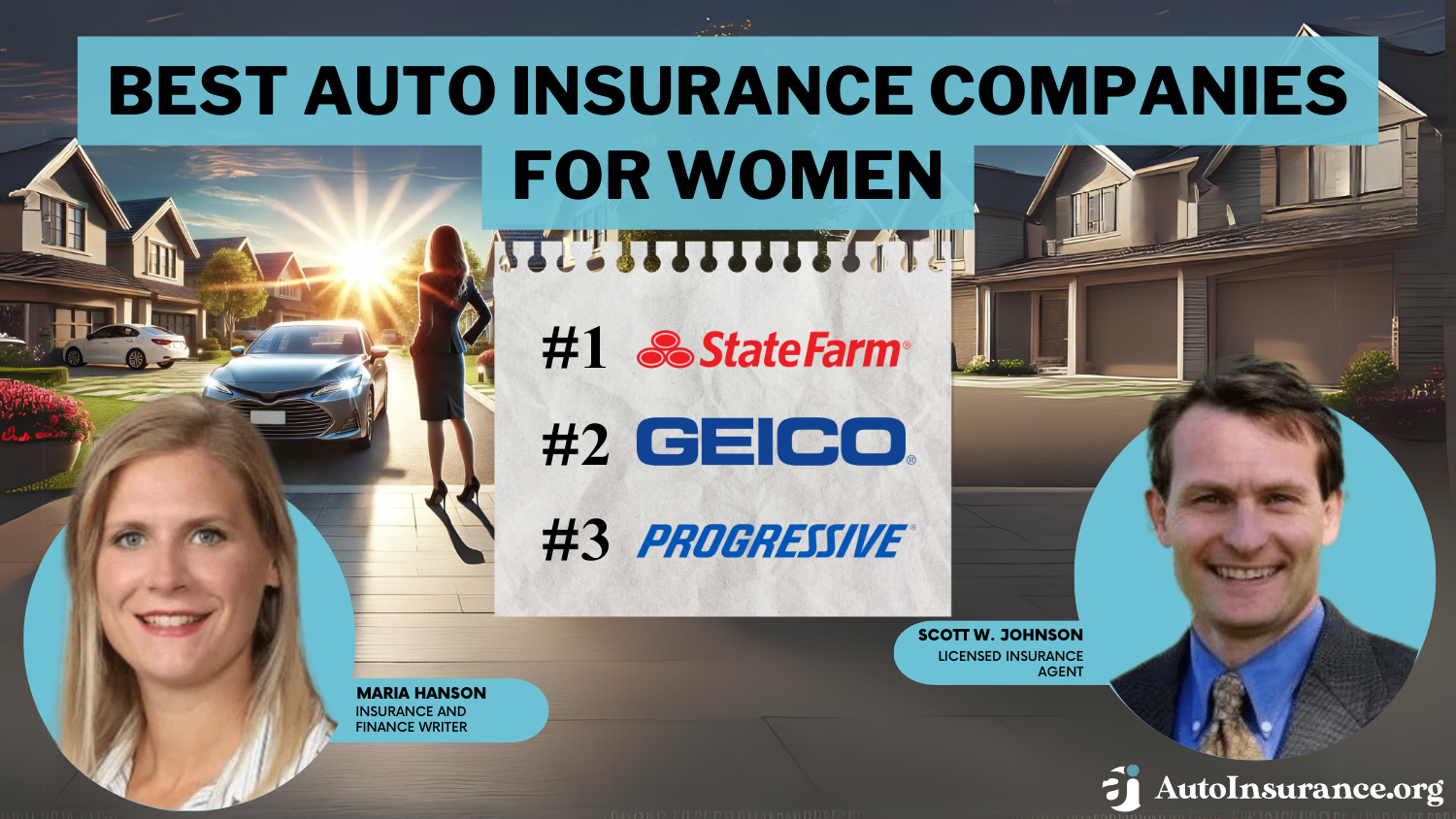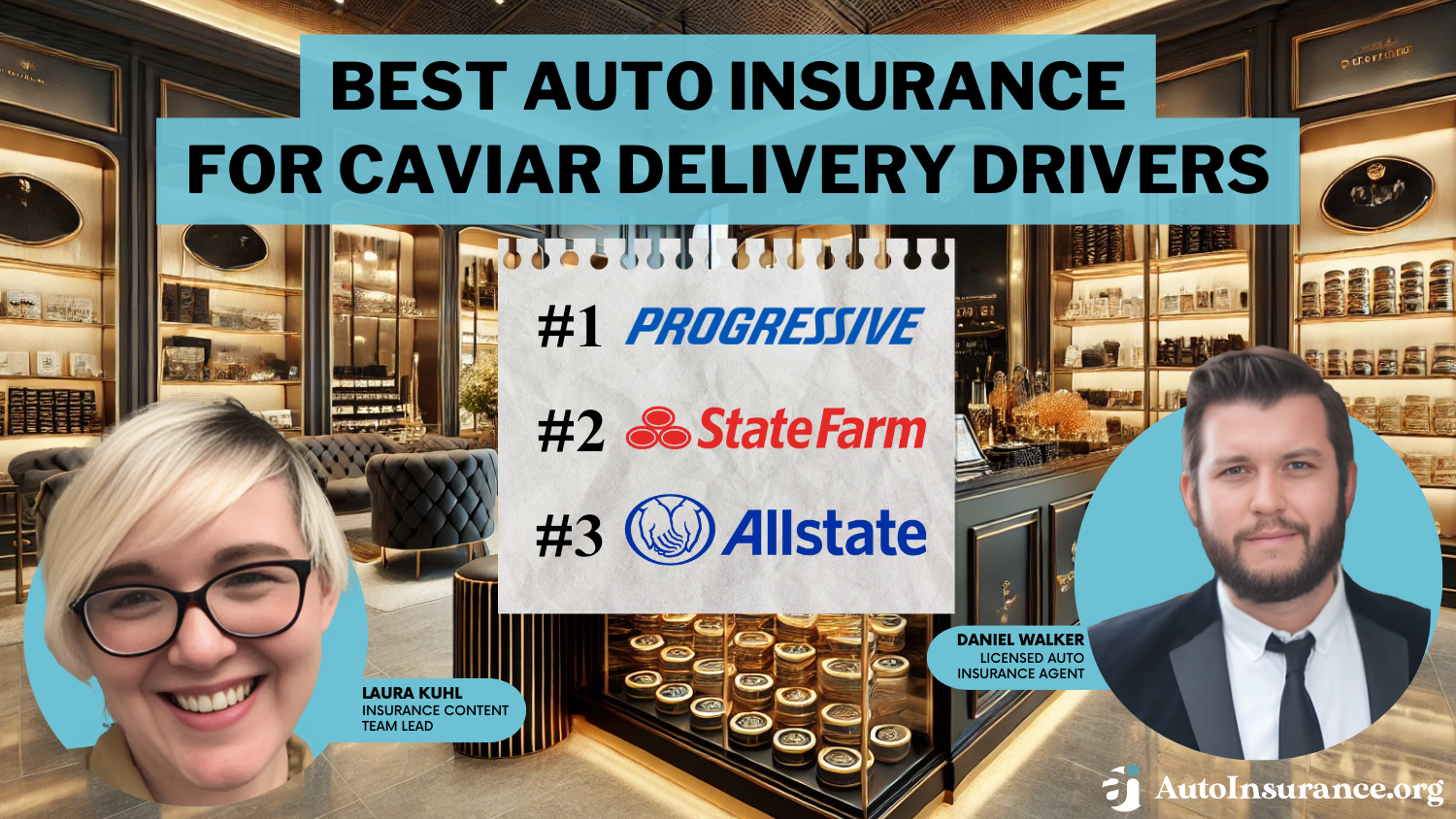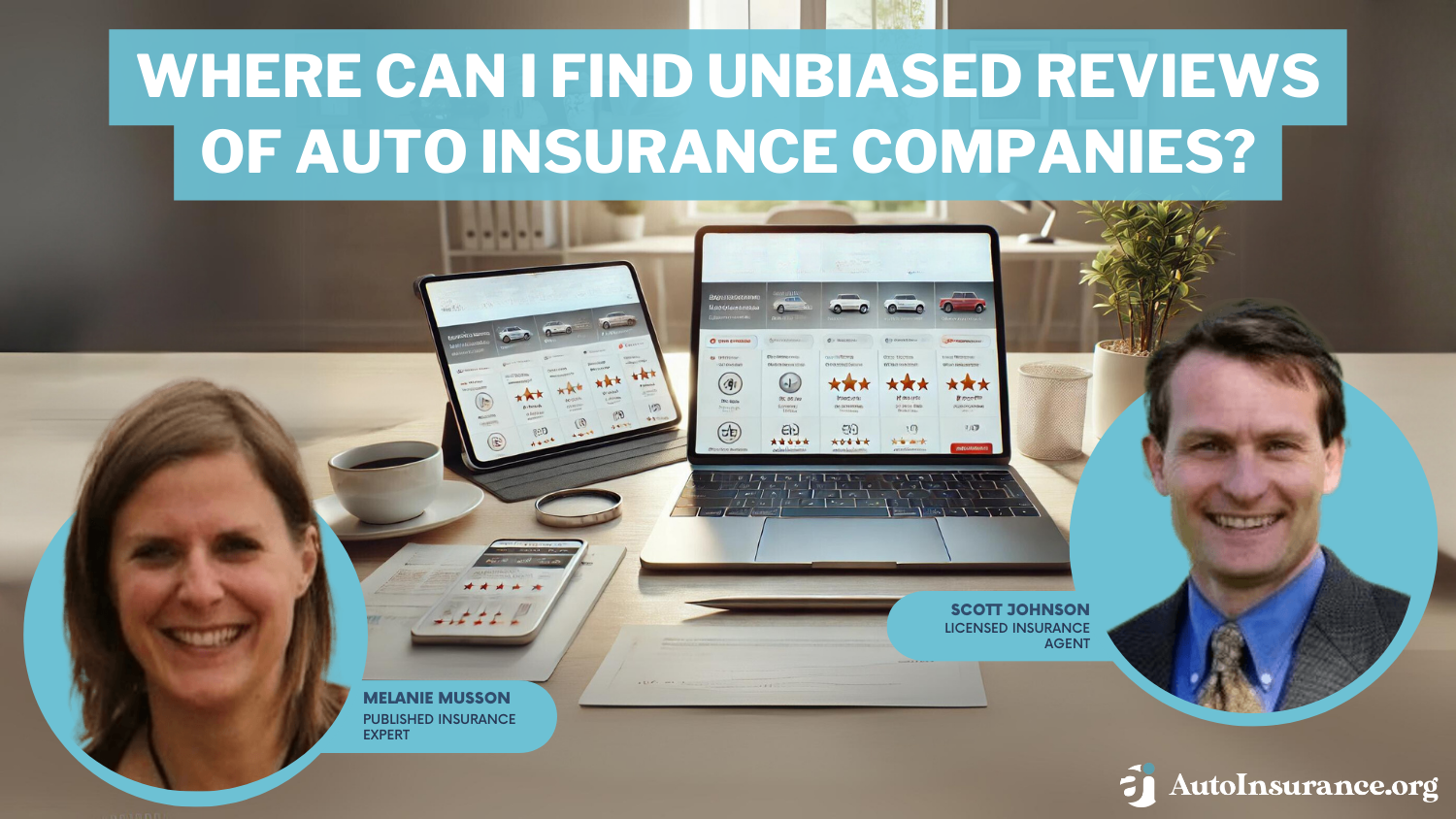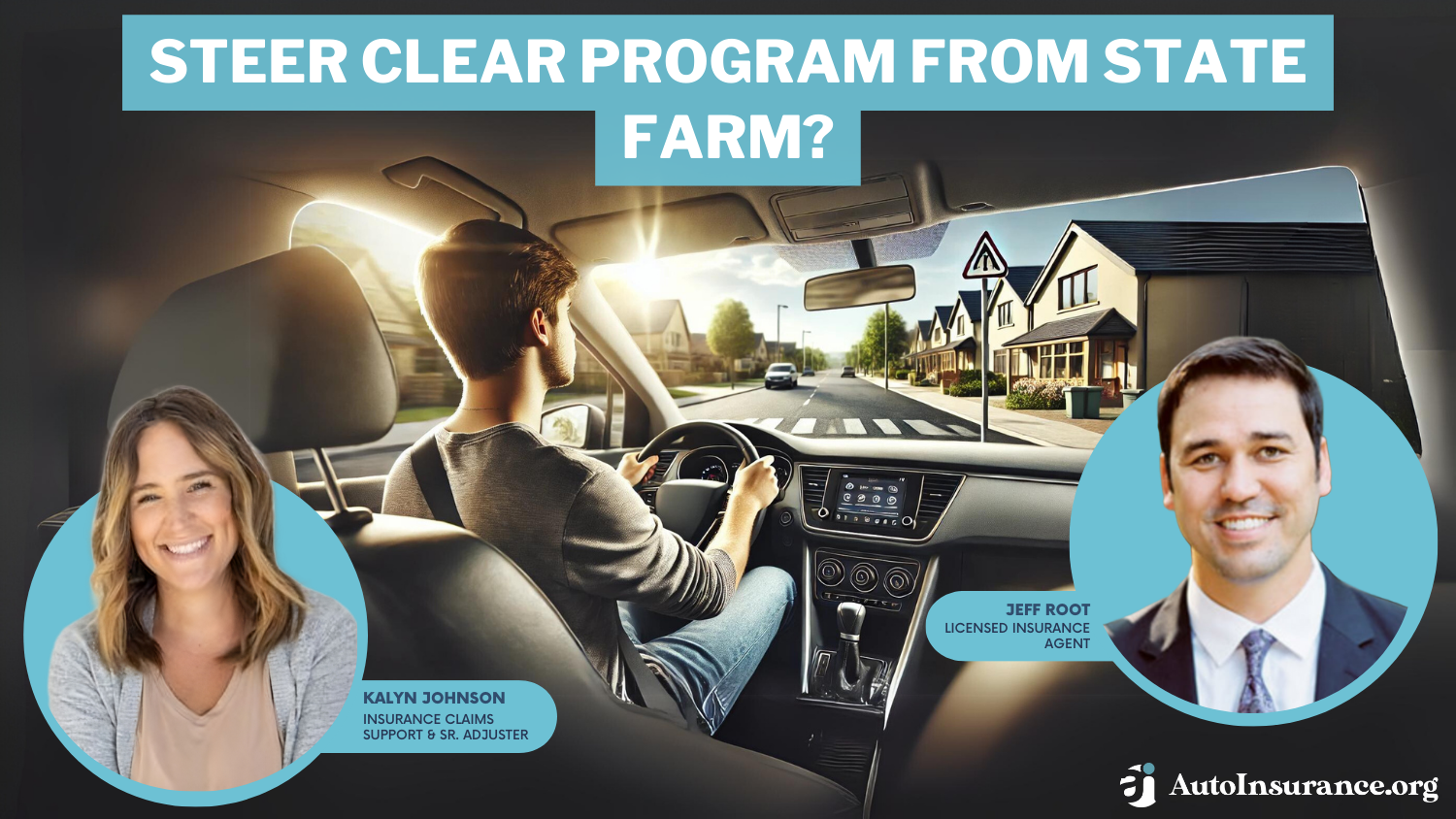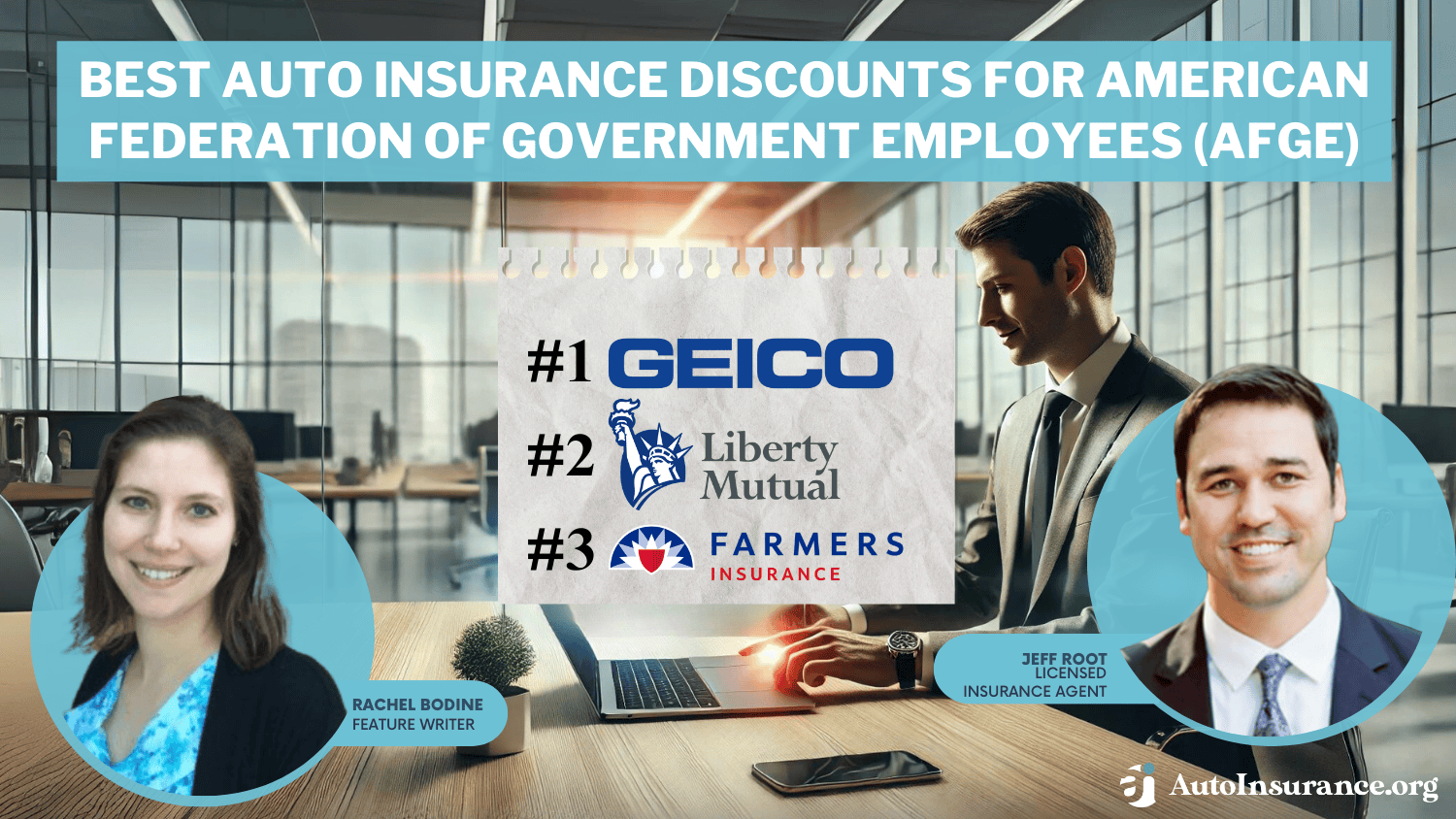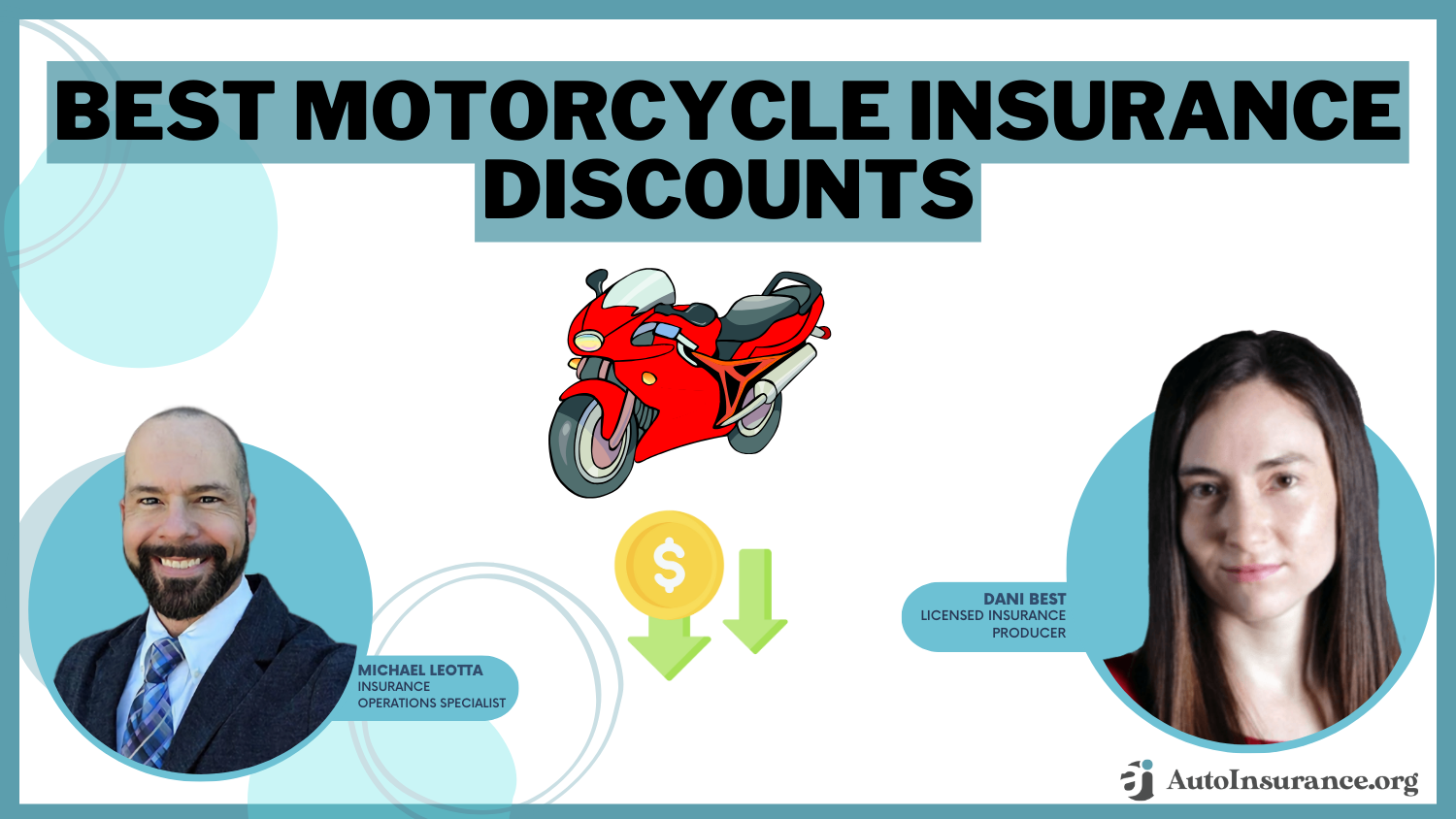Can a private auto insurance company meet my needs?
A private auto insurance company can meet your needs, and all U.S car insurance companies are private. This free-market system results in competition between companies, which is why shopping around is important. It can be difficult to determine which auto insurance companies are best, so it's important to do your research.
Read more Secured with SHA-256 Encryption




Table of Contents
Table of Contents


Insurance and Finance Writer
Alexandra Arcand is an outreach administrator and insurance expert located in North Central Ohio. She has a passion for writing, investing, and education. As an insurance content writer for over three years, Alexandra has first-hand experience in business finance, economics, and real estate. She leads an outreach writing team that specializes in travel, real estate, healthcare, law, finance, an...
Alexandra Arcand


Licensed Insurance Agent
Jimmy McMillan is an entrepreneur and the founder of HeartLifeInsurance.com, an independent insurance brokerage. His company specializes in insurance for people with heart problems. He knows personally how difficult it is to secure health and life insurance after a heart attack. Jimmy is a licensed insurance agent from coast to coast who has been featured on ValientCEO and the podcast Modern Li...
Jimmy McMillan
Updated December 2024
Private Insurance Summary Table
| Summary | Details | From Experts... |
|---|---|---|
| Most Expensive State for Auto Insurance | Louisiana - $1,443.72 | iii.org |
| Least Expensive State for Auto Insurance | North Dakota - $659.94 | iii.org |
| Ranks Highest In Customer Satisfaction | Geico | jdpower.com |
| Ranks Lowest in Customer Satisfaction | Travelers | jdpower.com |
| Is business/commercial insurance tax deductible? | Yes | irs.gov |
| Pure Direct Loss Ratio of Personal Lines | 2017 - 66.9% | naic.org |
| Pure Direct Loss Ratio of Commercial Lines | 2017 - 55.6% | naic.org |
You’ve probably heard of public insurance, but you may not know what it means. When it comes to private insurance vs public insurance, what is the difference anyway? This article will cover everything you need to know, starting with some basic definitions, like the private car insurance meaning.
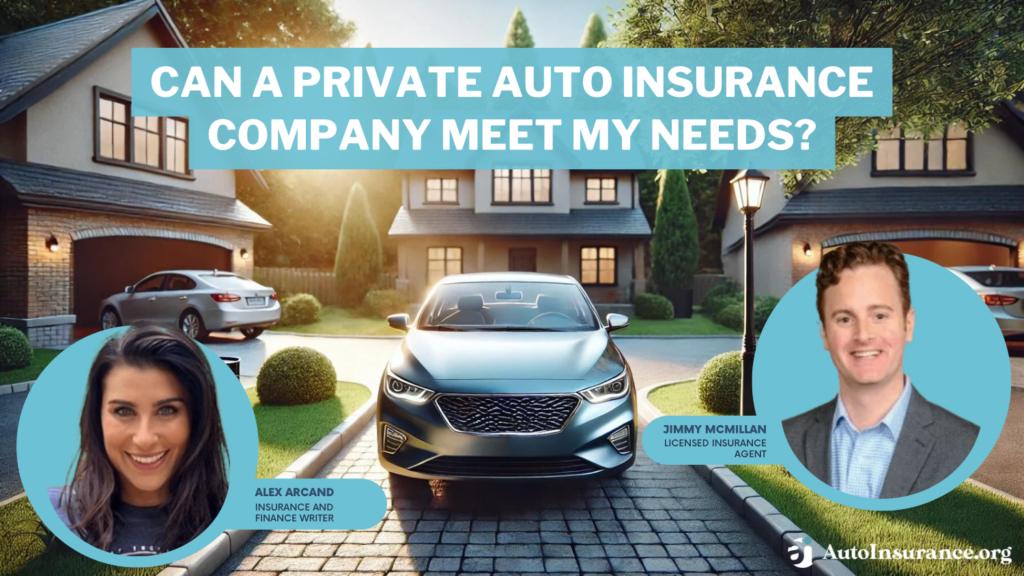
What is private car insurance? Private auto insurance, also known as free-market insurance, is provided by individual companies that are not controlled by the state. Public car insurance companies, on the other hand, are regulated by the government.
Can private car insurance companies meet my needs?
In short: yes. Essentially every auto insurance policy available in the United States is a private car insurance policy, which means the vast majority of Americans will have auto insurance through an individual company rather than a government agency.
The question as to whether a private car insurance company can meet your needs depends on what exactly you’re looking for in your insurance coverage.
Sometimes it’s difficult to determine which new auto insurance companies are best, so it’s important to do your research before you purchase a policy. At the end of the day, you’ll be in a position to make an informed decision based on current auto insurance quotes.
Rankings are also important, as they help you to see where a particular auto insurance firm is positioned. Better-ranked companies are safer to invest in, and they have the ability to provide more services.
Enter your ZIP code into our FREE tool above to get private car insurance quotes from the most affordable private vehicle insurance companies in your area.
Private vs Public Insurance
If numbers are anything to go by, then it’s easy to assume that public auto firms are more affordable compared to private ones. However, there are many issues to consider beyond cost, including benefit levels and availability. When trying to understand what is the difference between private and public insurance, weigh all the costs and advantages and make a sound decision that will give you the best coverage for your needs.
Government involvement in providing insurance is a hot-button issue in many countries. Even in countries like Canada where government auto insurance is widely available in many provinces, there’s still a significant amount of discussion regarding rates and payment of claims.
In the United States, auto insurance is a major industry. Many of the top 10 auto insurance companies also offer coverages like homeowners or renters insurance, boat and RV insurance, umbrella policies, and much more.
Are insurance companies government owned or are insurance companies privately owned in the U.S.? While it’s possible there are some public auto policies available through a local or state government somewhere in the United States, we were unable to find any as of this writing.
Most state and federal programs are designed to help with your bills, not provide you a service. One of the biggest exceptions to this rule is health insurance, as government programs like Medicare, Medicaid, and Veteran’s Affairs are all public health insurance options available to people who meet certain criteria.
Free Insurance Comparison
Compare Quotes From Top Companies and Save
Secured with SHA-256 Encryption
Business Auto Insurance
You might be wondering about car insurance for business vs personal use. If your job requires you to use your own car for work purposes, you’ll be required to have a business auto insurance policy. A business insurance policy will likely be necessary for:
- Uber/Lyft drivers
- Pizza delivery people
- Traveling salespersons
- Social workers
- Home healthcare providers
Anyone who uses their own car for work purposes will require business auto insurance. Not purchasing a business policy can put you in danger of having a claim denied if an accident happens while you’re on the clock.
What counts as business use for auto insurance?
Using your personal vehicle for any work-related purpose can be considered business use. If you’re working in your vehicle, i.e., as a delivery person, or if you regularly have to drive to clients’ homes or businesses to do your job, i.e., as a home health aid, you should purchase a business insurance policy.
Does personal car insurance cover business use?
It’s a common question: does my personal auto insurance cover business use? Essentially, no, it does not. If you’re using your car for business and you get into an accident, your personal vehicle insurance policy may not cover you. If you’re unsure whether you need a business policy, think of it as a “use of a personal vehicle for company business” policy.
If you use your vehicle for company business, talk to your insurance company about changing to a business insurance policy. You probably shouldn’t plan to use your personal insurance for a company car in most cases. Instead of wondering do I need auto insurance for a company car?, talk to your insurance agent to ensure you are adequately covered.
Commercial or business auto insurance covers both physical damage and liability in commercial vehicles that are not typically covered by personal insurance. A company-owned car may be covered by a commercial policy when it’s being driven for work purposes, while someone driving their personal car for work purposes (say, an Uber driver) may need to purchase a business policy.
Commercial Auto Insurance
What about comparing private vs commercial insurance? Commercial insurance is a policy held by a company to protect a vehicle they own that is driven by an employee for work purposes. So if you want to know, can I insure a commercial vehicle privately? The answer is it depends on your situation.
In California, a commercial insurance policy may also be required if you own a vehicle that cannot be covered under a personal policy and only functions as a work vehicle, like a food truck. This type of policy will likely be necessary for:
- Box trucks
- Food trucks
- Work vans
- Service utility trucks
- Tow trucks
- Buses
- Emergency vehicles (ambulance, fire truck, etc.)
Can you insure a commercial vehicle privately? Well, when it comes to who is an insured under a commercial auto policy, this will include any licensed driver who is using the vehicle for work purposes.
Why does my employer need proof of my auto insurance?
An employer typically doesn’t need to list the names of drivers who are allowed to use the vehicles on their policy, but they will be required to prove they have a copy of your license, your driving record, and other information before they can allow you to drive a company vehicle.
Part of the reason for this is that they need to verify you’re driving legally, which includes having active auto insurance.
If you’re covered under your employer’s commercial plan you will be subject to company car insurance rules, which will probably state that you’re required to report any accidents or tickets you receive, even in your personal time, and that you’ll be required to maintain your driver’s license in good standing.
Does commercial auto insurance cover personal use of your work vehicle?
The odds are good that personal use of your work vehicle would not be covered under your employer’s business car insurance policy. You’ll need to check with them for specifics but, for example, a tow truck company likely isn’t going to pay for an accident that happened when you took your truck out to see a movie.
Since commercial policies are often for vehicles that are designed for a specific purpose, like city buses, they aren’t considered personal transit vehicles and are therefore not covered for personal use under your own private motor vehicle insurance.
When it comes to company car insurance vs personal car insurance, you’ll likely be required to continue getting your own car insurance to stay on your employer’s coverage.
Differences in Insurance Providers
What is the difference between public and private insurance providers? Insurance providers vary in terms of size, corporate philosophy, structure, customer base, target market, insurance premiums, and coverage. Each company is unique and has its own pricing standards, which is why it’s important to do your research and get multiple quotes when comparing public insurance vs private insurance.
If you choose to use a comparison website that provides quotes, check to verify that the site is independent and not affiliated with any auto insurance firm. This way you know they’re providing you with unbiased information.
In places where public insurance is widely available, the biggest difference between public vs private insurance is that public insurance tends to be the most affordable option because these programs don’t earn a profit from your premiums. Private auto insurance company profitably works by selling customers more coverage, which means they offer a much wider variety of coverages and benefits in hopes of earning your business.
For example, privately owned car insurance companies are likely to offer 24-hour customer service, roadside assistance, or other benefits to give you the most value for your dollar. The rates offered by private insurers are determined by the market value and are designed to create profits, which is why there are huge rate differentials between private and public firms.
When choosing a private insurance company, you’ll want to compare more than just customer reviews. The company’s financial stability is also important. Take a look at the A.M. Best ratings in the chart below to get an idea of how financially sound some of the most popular companies are:
A.M. Best Ratings
| Companies | Financial Rating | Financial Stability |
|---|---|---|
| A+ | Stable | |
| A++ | Stable | |
 | A | Stable |
 | A+ | Negative |
| A+ | Stable | |
| A | Stable | |
| B | Stable | |
| A++ | Stable |
Private auto insurance rates generally favor certain categories of people, such as older drivers and drivers with a clean record. People with poor driving records are forced to pay higher premiums, and the same goes for younger drivers. These people are considered risky, so the insurance company charges them higher premiums.
The cheap private car insurance companies might not be the best fit for you, so be sure to shop around.
Free Insurance Comparison
Compare Quotes From Top Companies and Save
Secured with SHA-256 Encryption
What type of auto insurance coverage do you need?
Is auto insurance all the same? The simple answer is no. Whether you choose public or private insurance for your personal auto policy, or even if you’re getting a business auto policy, there are three basic types of auto insurance coverage that you might need: liability, collision, and comprehensive. As you can see in the chart below, the coverage level you choose will impact your rates:
Rates by Coverage Level
| Auto Insurance Coverage Level | Average Annual Auto Insurance Rates |
|---|---|
| Low Coverage | $3,754.18/year |
| Medium Coverage | $3,961.99/year |
| High Coverage | $4,143.29/year |
You might wonder what exactly a private car liability only policy means. A liability-only policy would be considered a low level of coverage, whereas adding comprehensive and collision to your policy will give you a higher level of coverage.
Liability Coverage
Liability coverage protects you financially by paying for damages to another person’s vehicle if you are at fault in an accident. It also covers medical bills for any bodily injury someone else sustained in an accident where you were at fault.
https://www.youtube.com/watch?v=04SZGS6DdVM
Liability coverage is required by law in almost every state. Even in states where it isn’t required, it’s still a good idea to have some level of liability coverage in place. If you’re found responsible for an accident and you don’t have insurance, you could be held accountable for hundreds of thousands of dollars in property and medical damages. A judge could put a lien on your property or garnish future wages, so it’s important to make sure you’re fully protected.
Many companies also offer uninsured motorist coverage, which covers you at the same levels as your liability coverage if you’re in an accident where an uninsured driver is at fault. Having this kind of coverage can also end up saving you a lot of money, as a serious accident with an uninsured driver can be very costly.
Collision Coverage
Collision insurance coverage protects you by paying for damages to your vehicle if you are at fault in an accident, whether you hit another vehicle or a stationary object such as a fence post. Collision coverage is not required by law, so people with older vehicles or the ability to replace their car out-of-pocket if necessary may choose not to purchase collision coverage.
https://www.youtube.com/watch?v=jFDl_p3gHNk&t=20s
If you’re responsible for a loan on your car, you may be required by the lender to have full coverage insurance, including collision, on your policy. This is based on the contract you have with your lender, not state or federal law.
Comprehensive Coverage
You might be asking, what is the comprehensive insurance definition? Comprehensive coverage protects you by paying for damage to your car that isn’t caused by an accident. Some examples of what might be covered by a comprehensive claim for auto insurance are hail damage, theft, and vandalism.
Comprehensive also covers animal damage, so whether you hit a deer or a squirrel chewed through the soft parts of your engine compartment, you will need comprehensive coverage to pay for those damages.
https://www.youtube.com/watch?v=d3eh4wIuNks&t=31s
Comprehensive is another coverage that may be required by your lender but not by local or federal laws. If you can afford to replace your car out-of-pocket, you may choose not to bother with comprehensive coverage.
What is private motor insurance?
In the United States, private auto insurance is typically thought of as a personal policy, traditionally considered the opposite of a business policy. In other countries, a private motor insurance policy is considered an alternative to a public insurance policy.
Thus, what is considered private insurance depends on where you’re buying your insurance policy.
Do insurance companies share information?
Insurance companies do share information through online databases, whether they are public, private, business, or commercial insurers. There are a couple of ways they do this:
- CLUE – The Comprehensive Loss Underwriting Exchange, or CLUE, is a database that helps insurance companies share and track claims information. Claims stay in the CLUE database for up to seven years.
- A-PLUS – The Automated Property Loss Underwriting System, or A-PLUS, is a separate database that can help insurance companies track and share claims information. Claims stay in the A-PLUS database for up to five years.
It’s even possible for insurance companies to find out questions you’ve asked to other insurers in situations where no claim was filed, so don’t assume you can leave your driving record behind by switching to a new insurance company.
Free Insurance Comparison
Compare Quotes From Top Companies and Save
Secured with SHA-256 Encryption
Can you get a car insurance quote without giving personal information?
Generally, you can’t get a quote for insurance without giving some personal information. While some companies may be willing to give you a simple quote without your personal information, the quote isn’t likely to be accurate. Your rate is partially determined by your personal information, such as your ZIP code and your driving history, so it is necessary to provide you with an accurate quote.
The Bottom Line
So ultimately, what is the difference between public and private insurance? Auto public insurance is sometimes more affordable, but typically isn’t available to the average insurance customer in the United States. Getting a quote from an online quote site can help you compare policies to find the best price on private auto insurance.
Enter your ZIP code below to receive quotes for insurance for private car companies in your area. You may find out you can build your own car insurance policy to make sure you have adequate coverage regardless of your needs.
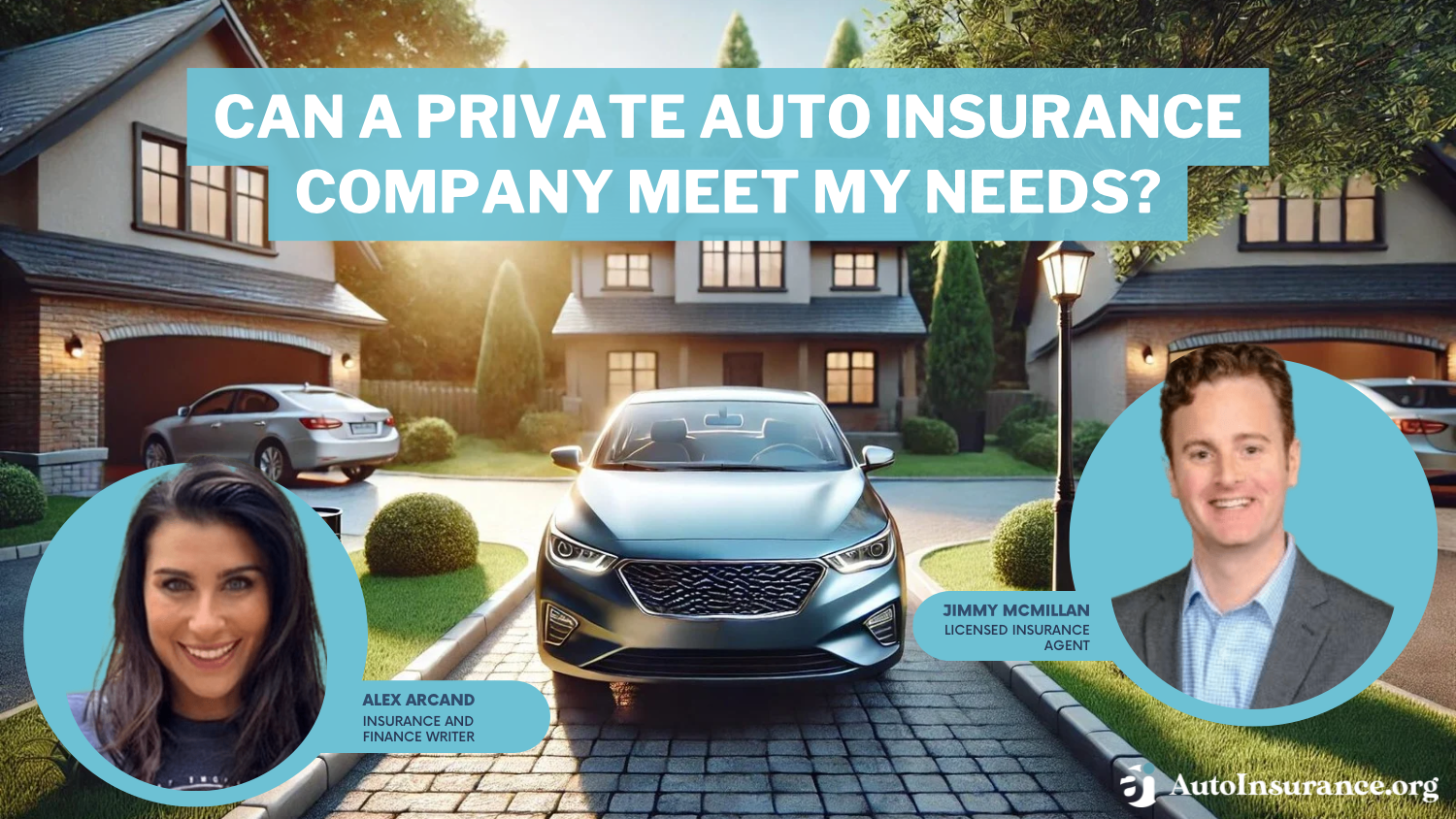
Frequently Asked Questions
What is a private auto insurance company?
A private auto insurance company is a non-governmental entity that offers insurance coverage for vehicles owned by individuals or businesses. These companies operate in the private sector and provide various types of auto insurance policies to meet the needs of their customers.
Are private auto insurance companies reliable?
Insurance for auto by private insurance companies can be reliable and trustworthy, just like any other insurance provider. However, the reliability and reputation of a specific company can vary. It’s important to research and choose a reputable and financially stable insurance company that has a good track record of serving its customers and handling claims efficiently.
What types of coverage do private auto insurance companies offer?
Private insurance car companies offer a range of coverage options to meet different needs. These typically include:
- Liability Coverage: Covers damages and injuries to other people if you are at fault in an accident.
- Collision Coverage: Pays for repairs or replacement of your vehicle if it’s damaged in a collision.
- Comprehensive Coverage: Covers damage to your vehicle from non-collision incidents like theft, vandalism, or natural disasters.
- Personal Injury Protection (PIP): Covers medical expenses and related costs for you and your passengers regardless of fault.
- Uninsured/Underinsured Motorist Coverage: Protects you if you’re involved in an accident with a driver who has insufficient or no insurance.
Can private auto insurance companies meet my specific needs?
Yes, private auto insurance companies, just like public car insurance companies, aim to cater to the diverse needs of their customers. They offer various policy options and coverage limits, allowing you to choose a plan that aligns with your requirements. Whether you have a specific budget, need additional coverage for certain risks, or have unique circumstances, private insurers can often tailor policies to meet your needs.
How can I determine if a private auto insurance company is suitable for me?
To determine if a private auto insurance company is suitable for you and not just cheap private car insurance, consider the following:
- Research and compare multiple insurance providers to find one that offers the coverage you need at a competitive price.
- Check customer reviews and ratings to gauge the company’s reputation for customer service and claims handling.
- Evaluate their policy features, terms, and conditions to ensure they align with your requirements.
- Assess their financial stability by reviewing their ratings from independent rating agencies.
Can private auto insurance companies provide discounts or cost-saving options?
Yes, many private auto insurance companies offer discounts and cost-saving options to their policyholders. These may include discounts for safe driving, bundling multiple policies (e.g., auto and home insurance), having anti-theft devices installed in your vehicle, or maintaining a good driving record. Additionally, some companies offer usage-based insurance programs that utilize telematics devices or mobile apps to monitor your driving habits and potentially offer discounts based on your behavior.
What is a private passenger voluntary policy?
So you’re asking what is private passenger voluntary policy? An auto private passenger voluntary policy simply means an insurance policy that covers the personal vehicles of individuals or families on a voluntary basis. That goes hand in hand with the private passenger auto insurance definition, which refers to the insurance coverage for families or individuals and their personal vehicles.
Get a FREE Quote in Minutes
Insurance rates change constantly — we help you stay ahead by making it easy to compare top options and save.


